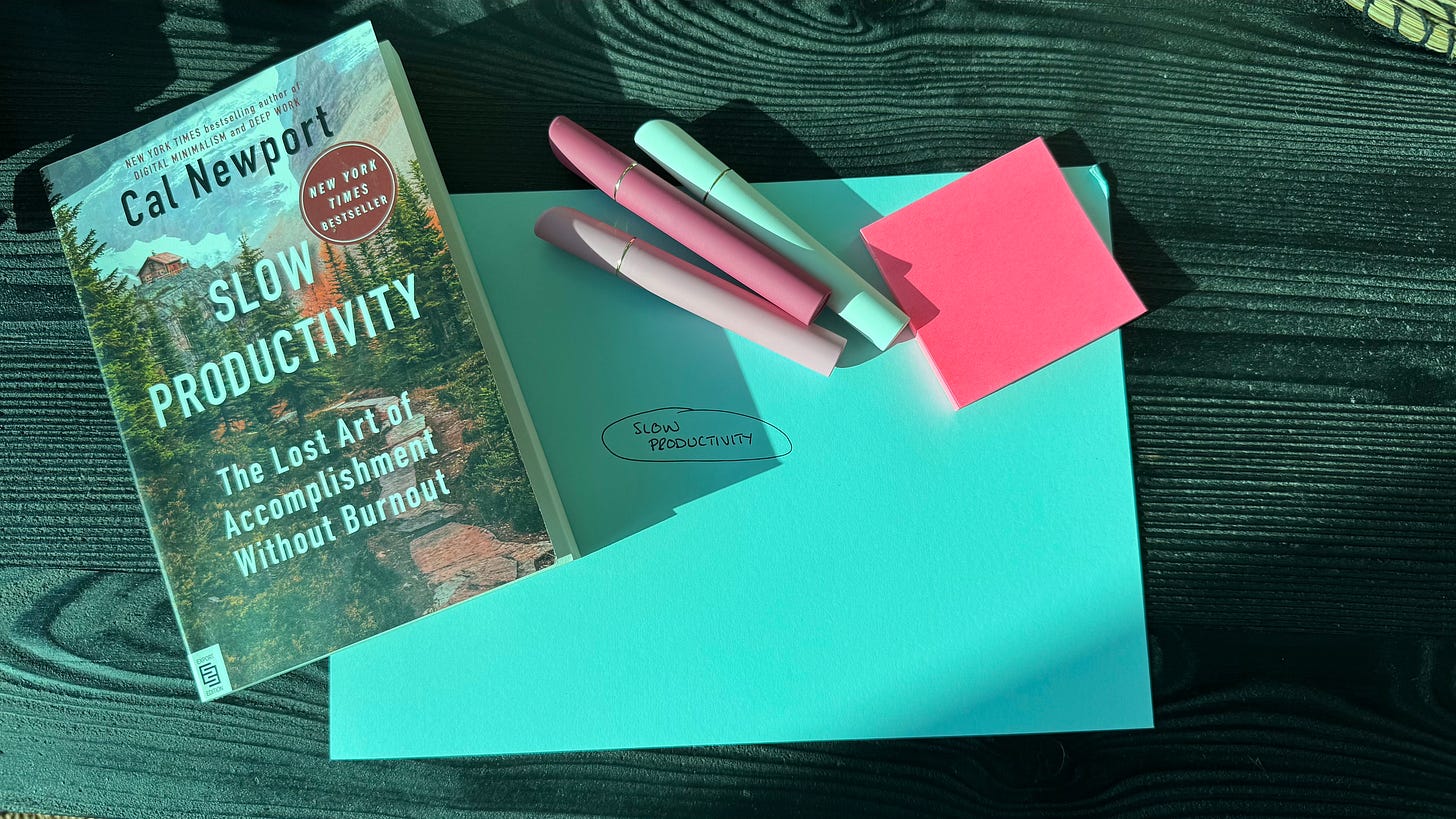The Truth About ‘Slow’ That Convinced Me to Change How I Work
I’ve been feeling low-energy this week, as I often do just before my period, and have been looking at my to-do list each morning like this.
In the past, I’d power through with caffeine and sheer will, because slowing down felt like failure.
But going back to bed and binge-watching Severance all day, doesn’t feel like much of a win either.
So I went back to finish Slow Productivity by Cal Newport, for some advice.
Which was essentially the same as my body’s.
One of his three principles of slow productivity is ‘work at a natural pace’.
By ‘natural’, he means inherent to human nature.
It’s so easy to forget now, but when we look back, for most of recorded human history, we have worked in a seasonal way.
That is - at varying levels of intensity over time.
It was the factory model that changed things, by optimising for relentless output, and we still apply that mindset to knowledge work, even when it doesn’t fit.
Which means most of us are still measuring our productivity by how much we’ve been able to cram into a day or week, overriding our natural rhythms and pushing through exhaustion in order to feel productive at all costs, leading to burnout.
“Working with unceasing intensity is artificial and unsustainable. In the moment, it might exude a false sense of usefulness, but when continued over time, it estranges us from our fundamental nature, generates misery, and, from a strictly economic perspective, almost certainly holds us back from reaching our full capabilities,” he writes.
That last part about being held back from our full potential is key, because many of us equate ‘slow’ with loss.
If you’re ambitious, our anxieties about slowing down are often around falling behind - losing success, respect, opportunities, even time itself.
But the opposite is true.
Slowing down gives us a strategic advantage.
It increases our probability of success, opportunity, and respect by allowing us to focus on high-impact work. I saw this firsthand at Facebook, where performance was measured by impact, not sheer volume of work.
I’d get around this by hedging my bets and trying to optimise for both impact and volume - which is how I ended up in never-ending loops of burnout.
So these principles of slow productivity are reassuringly aligned with the shifts I’ve been making the past few years in how I work.
Do fewer things (at once)
Work at a natural pace
Obsess over quality
And as I’ve learned, my ‘natural pace’ already includes a built-in slow season every few weeks with my cycle.
Which instead of resisting it, I’m finally using it. Not to fall behind, but to work better, deeper, and smarter.
What seasons do you notice in how you work - within a day, week, month and year?
P.s If you’re feeling the pull to work differently - more sustainably, with more impact - but aren’t sure what that looks like, let’s chat. I offer free 45-minute discovery calls to explore where you are, where you want to go, and how I can support you. Schedule yours here







